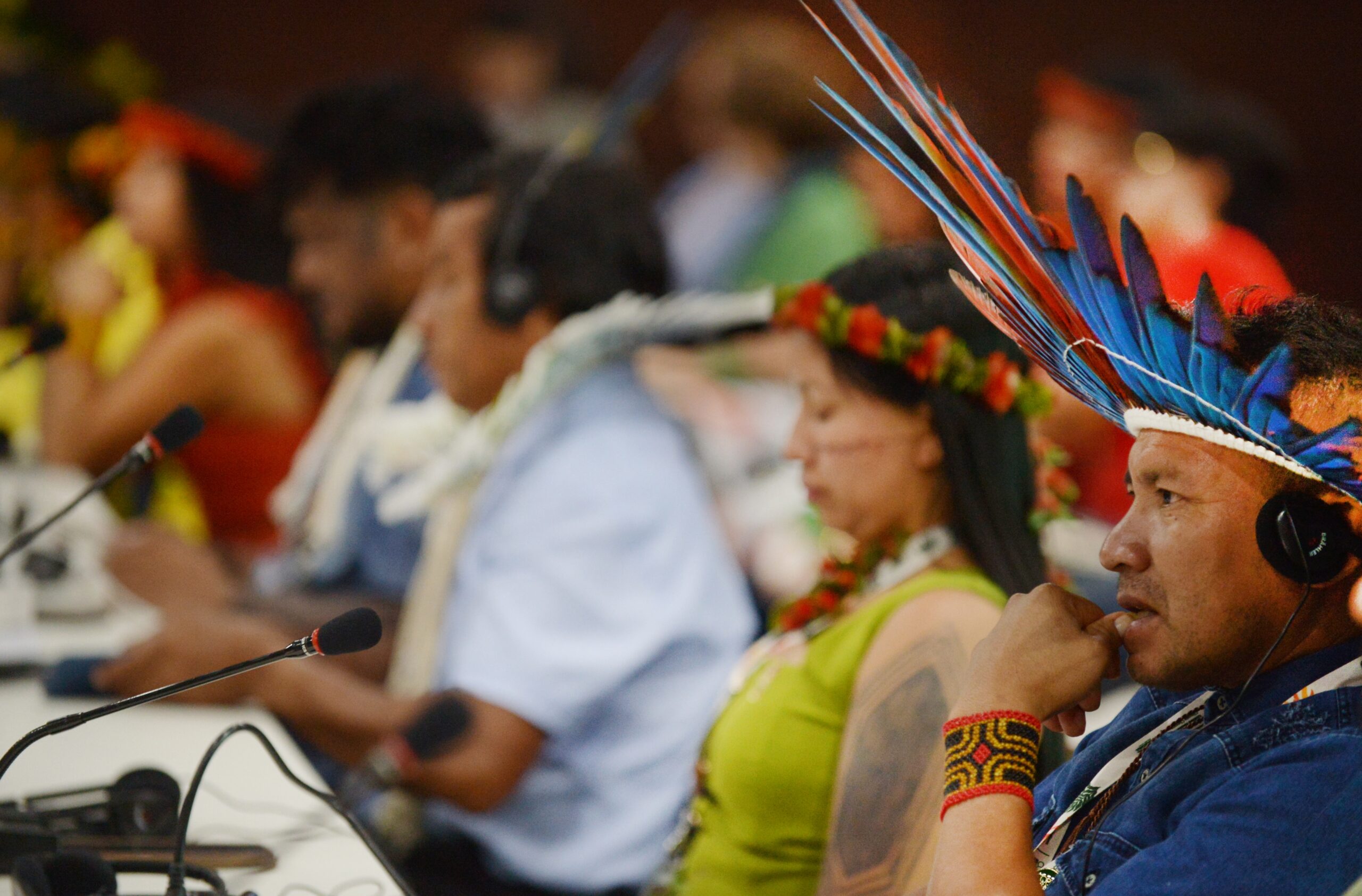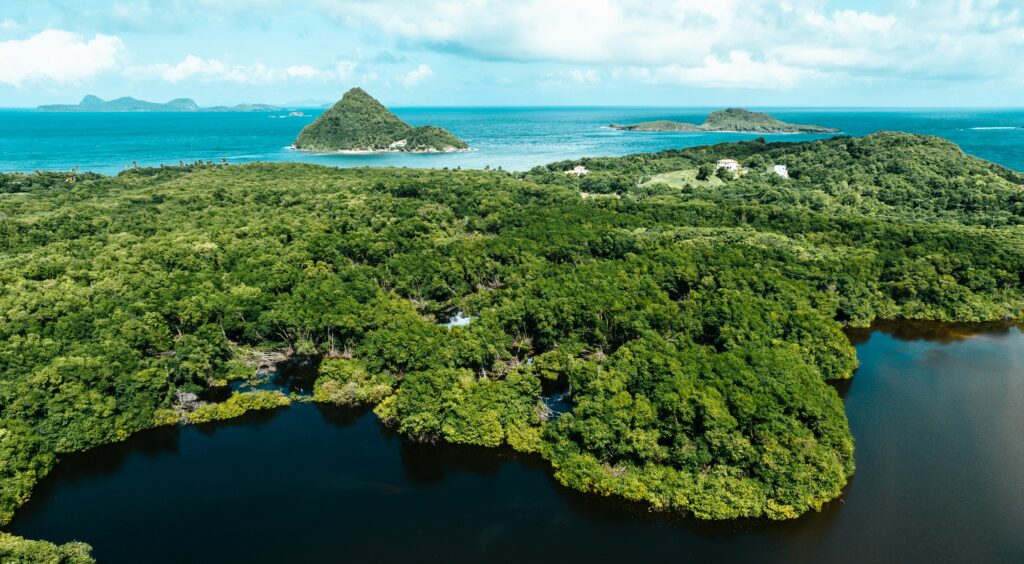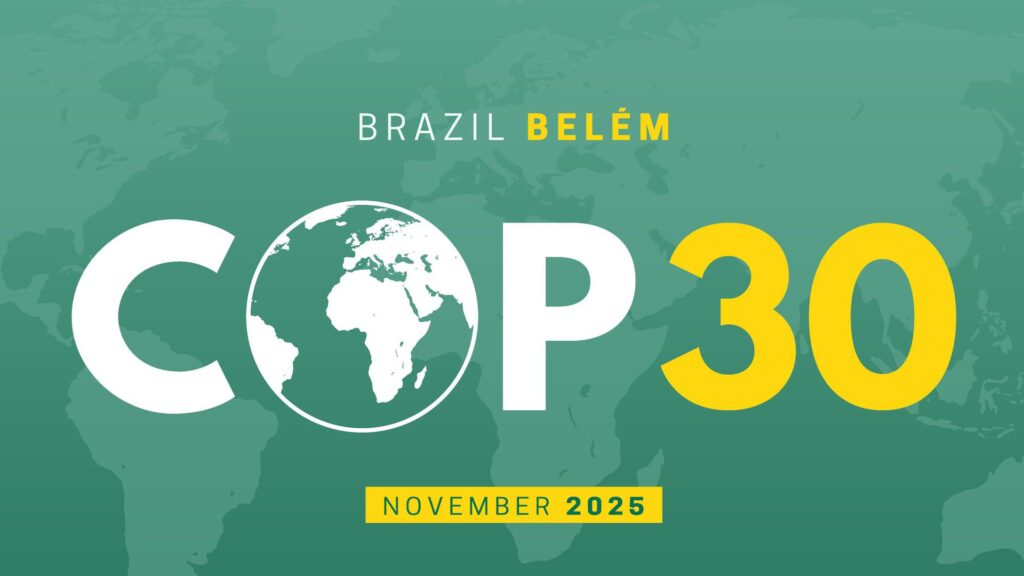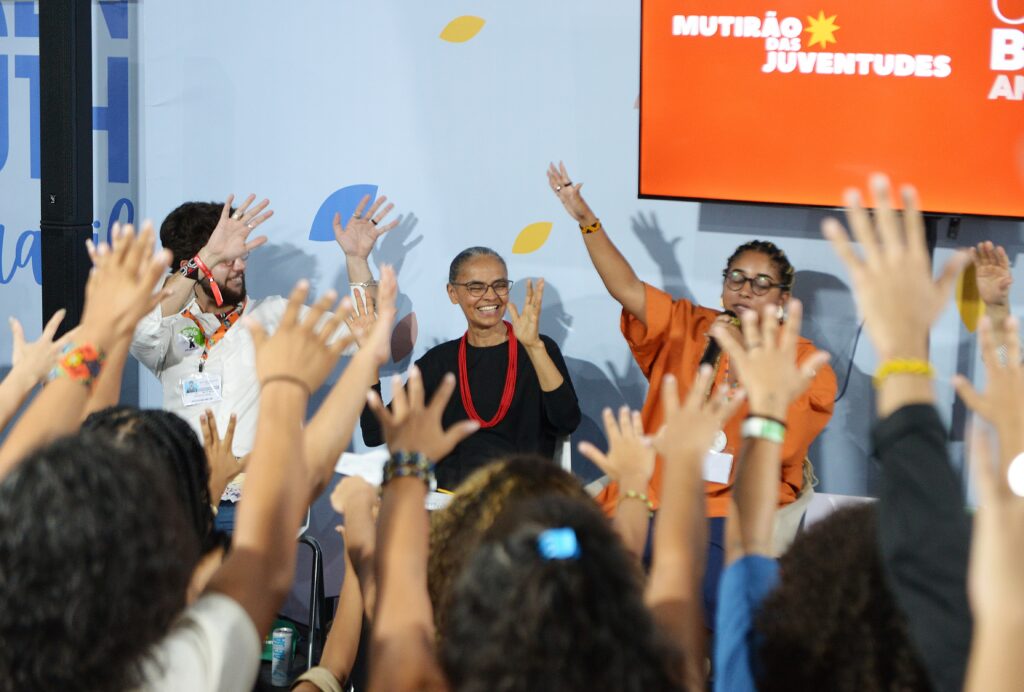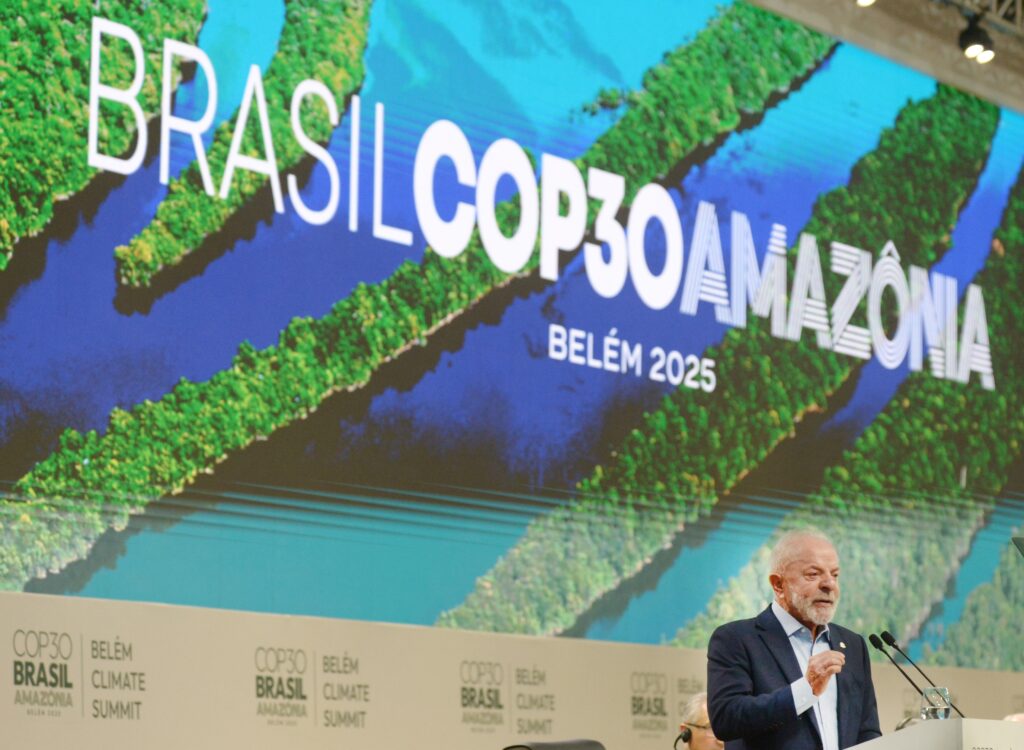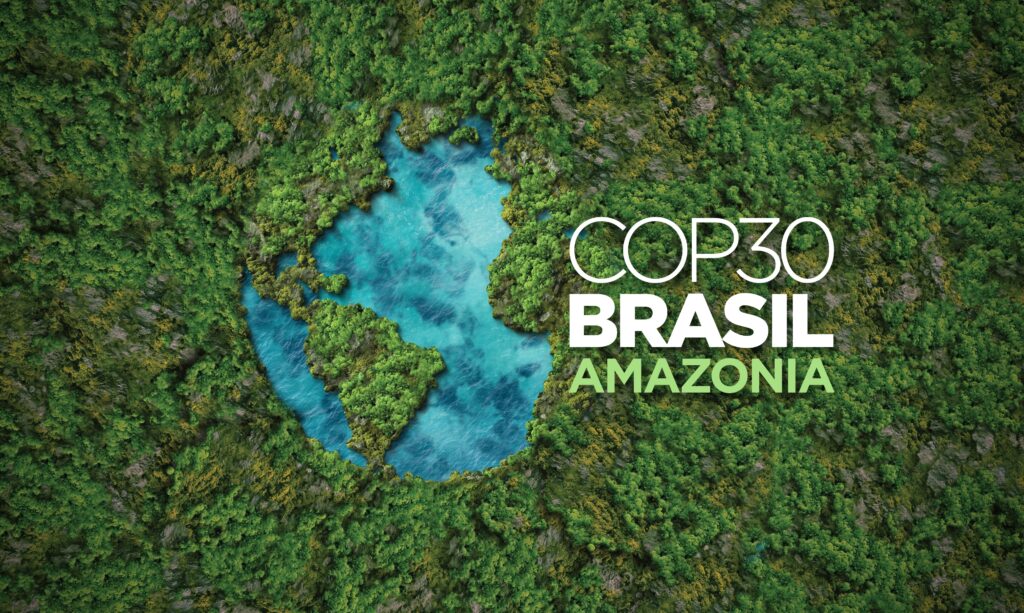With the UN climate summit hosted in the Amazon for the first time, COP30 2025 marks an unprecedented effort to bring Indigenous peoples to the centre of global climate decision-making.
An estimated 3,000 Indigenous peoples attended COP30 in Belém, Brazil, including around 1,000 in the official negotiations. Enhancing Indigenous leadership is being led by Brazil’s Minister for Indigenous Peoples Sônia Guajajara, who was appointed by President Luiz Inácio Lula da Silva in 2023 and is the first person to hold the role. Under her leadership, the COP30 Presidency has taken steps to embed widespread and meaningful Indigenous participation directly into climate governance. This includes establishing the Círculo dos Povos (Circle of Peoples) to ensure Indigenous representation from all regions at the centre of COP30 processes and strengthening recognition of traditional territories and cultures in addressing the climate crisis.
“Indigenous Peoples want to take part, not just show up,” Guajajara said. “We want to lead and be part of the solution. So far, the investments driven by COP decisions have failed to deliver results — the 1.5°C goal is slipping out of reach.”
Indigenous Lands: Guardians of Biodiversity
Climate action cannot be separated from rights, territory and justice, and Indigenous leadership is essential for an effective and just response to climate and environmental crises. Indigenous lands include 36% of Earth’s remaining pristine forests, and evidence shows that lands legally titled to Indigenous peoples are the most efficient models for forest protection and support the goals of the Paris Agreement. Francisco Filippo, chief advisor for International Affairs at the Ministry of Indigenous Peoples of Brazil, said: “Without amplifying Indigenous voices, ensuring effective processes for a just transition, and securing adequate financing for the best biodiversity conservation policies, those led and implemented by Indigenous peoples, the entire planet will fail.”
Yet, many territories remain without this vital legal recognition and face widespread threats from illegal mining, deforestation and land conversion.
Amazon Under Threat
The Amazon, the world’s largest tropical forest and vital carbon sink, faces a brutal onslaught of threats from deforestation, mining, pollution, drought and forest fires. Irreplaceable biodiversity is being destroyed on a vast scale, while scientists warn that the forest may be nearing a point of no return, where sections of the forest shift from absorbing carbon to emitting it.
And, while hosting COP in the Amazon holds significant symbolic value, preparations for the conference have led to reports of forest clearing, increased pollution and waste and disruption to Indigenous communities.
Demonstrations have been taking place both inside and outside the conference, with protesters demanding justice, recognition and protection of land and forests. One demonstrator, Benedito Huni Kuin of the Huni Kuin people of western Brazil, said: “Today we are witnessing a massacre as our forest is being destroyed.
“We want to make our voices heard from the Amazon and demand results. We need more Indigenous representatives at COP to defend our rights.”
Chief Raoni Metuktire, the indomitable Indigenous leader and forest protector, raised the vital need to protect nature and Indigenous peoples, saying: “If we continue destroying everything on this earth, there will be many consequences, there will be chaos on this earth.”
All of Humanity Benefits from Protecting Indigenous Rights and Lands
Establishing more territory as Indigenous land in Brazil is a priority for Guajajara as minister for Indigenous peoples, meaning the culture and environment are protected under law. “Indigenous People are the greatest guardians of the planet; we are the barriers that prevent greater destruction,” she said.
During COP30, Brazil announced the creation of 10 new Indigenous territories, including part of the Amazon, enhancing protection for areas of important biodiversity and home to thousands of Indigenous peoples. “Each and every Indigenous territory in Brazil is a reason to celebrate and is a reason for us to feel happy,” said Dinamam Tuxu of the Articulation of Indigenous Peoples of Brazil. “The traditional way of life of Indigenous peoples protects the lands and automatically guarantees global warming will be tackled. Consequently, the entire humanity benefits from it.”
Beyond Brazil, Guajajara said that among the goals of the summit is for countries to recognise the demarcation of Indigenous lands as climate policy worldwide.
A formal report on the State of Indigenous Participation in Climate Governance will be released following the COP30 Brazil climate summit to outline and review progress in strengthening Indigenous participation, and present recommendations developed through consultations across the year. Moving forward with climate policy and action strengthened by Indigenous knowledge and leadership can mark a more just, sustainable and effective path. Juan Carlos Jintiach, executive secretary of the Global Alliance of Territorial Communities, said: “Together, we move forward. Unity will bring redemption, and we must not lose hope because human rights are fundamental. Let us move ahead.”
Evelyn Smail
Writer, United Kingdom
Evelyn is a freelance writer and journalist specialising in climate science and policy, the just energy transition and the human impacts of climate change. She writes for independent publications, NGOs and environmental organisations. Evelyn has a background in sustainable development, climate justice and human rights.
Evelyn is a freelance writer and journalist specialising in climate science and policy, the just energy transition and the human impacts of climate change. She writes for independent publications, NGOs and environmental organisations. Evelyn has a background in sustainable development, climate justice and human rights.

